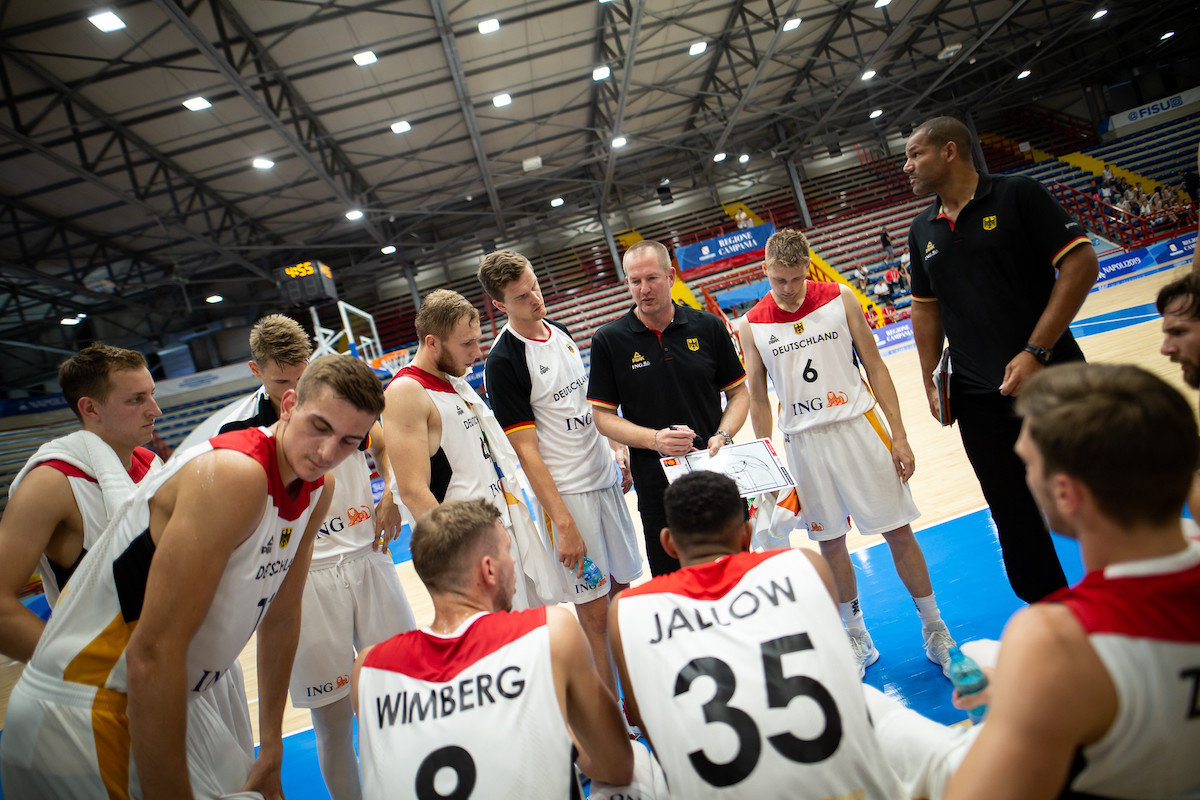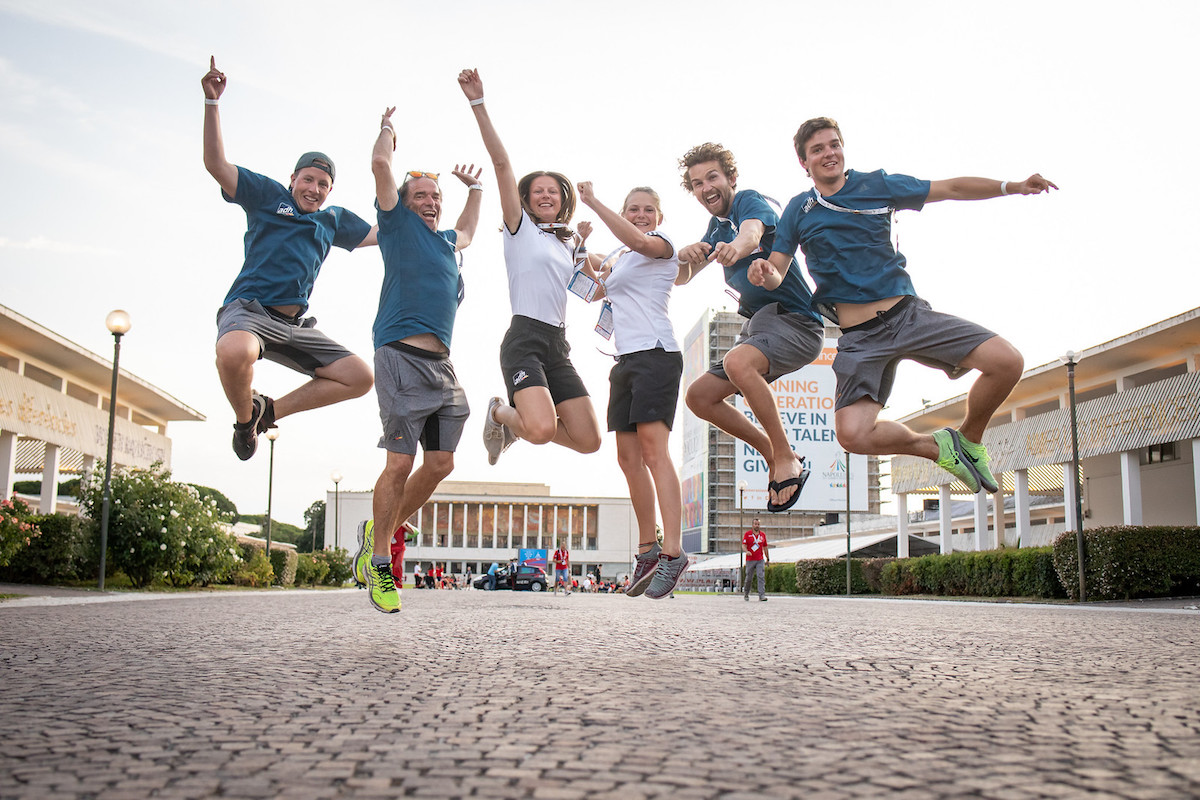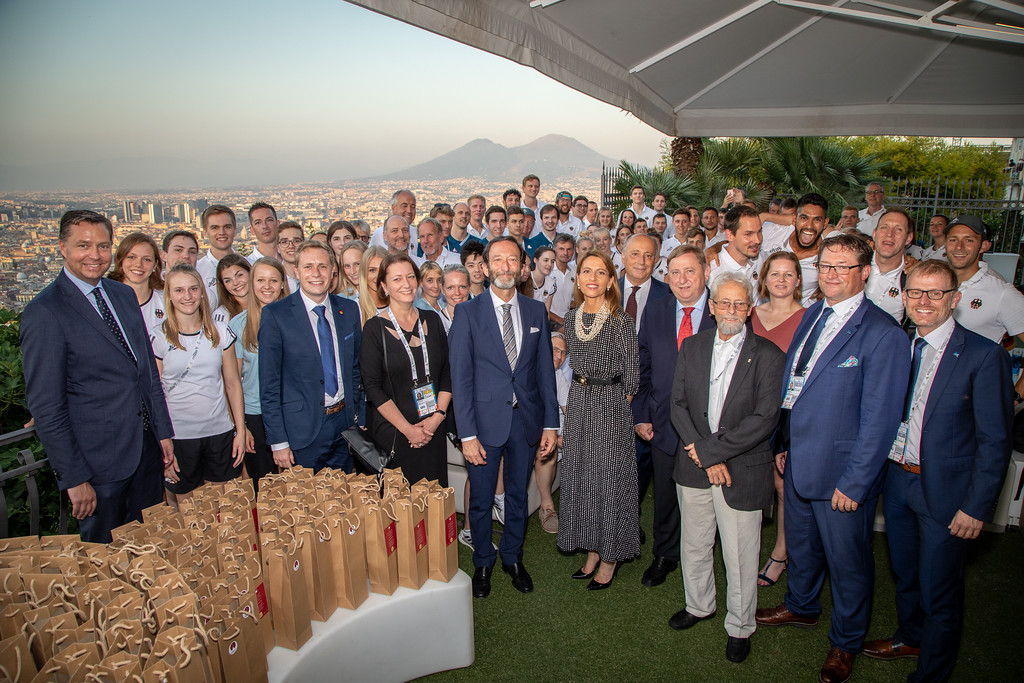Thirty years after the Summer Universiade was held in Duisburg in 1989, the German University Sports Federation (adh) is well on track to apply to host the Summer Universiade 2025. For the adh and its nearly 200 member universities, these are exciting times.
 In the context of potentially hosting the 2025 games, a 124-strong German delegation had travelled to Italy in July this year, during the Napoli 2019 Summer Universiade.
In the context of potentially hosting the 2025 games, a 124-strong German delegation had travelled to Italy in July this year, during the Napoli 2019 Summer Universiade.
“The delegation had a remarkable team spirit,” Jörg Förster, Chairman of the adh Board told FISU Student Ambassador Joshua Miethke. “Athletes who had already finished their own competitions, travelled long distances to support each other.”
“One of the highlights was the basketball game against Italy in a sold-out hall. 40 German fans faced almost 3,000 Italians in the stands – however, the German Team won,” he continued.
“The narrow victory of the table tennis team in the small final against Sweden and the subsequent first German table tennis medal in ten years were also among the highlights.”
 “The biggest highlight was, of course, the only German gold medal; which was won in the 1500m race by athlete Caterina Granz, a student of Freie Universität Berlin. It was on the final day of the event and she was cheered on by the entire team. It was a crowning glory the great sporting achievement of the German delegation with 18 medals.”
“The biggest highlight was, of course, the only German gold medal; which was won in the 1500m race by athlete Caterina Granz, a student of Freie Universität Berlin. It was on the final day of the event and she was cheered on by the entire team. It was a crowning glory the great sporting achievement of the German delegation with 18 medals.”
From an organisational point of view, due to certain challenges witnessed in Napoli, Förster said the focus of the German Universiade bid should be on ensuring a strong concept and plan for transport, accommodation and other such logistics.
“In addition,” he said. “Targeted public relations work and strong cooperation with the regional sport system should ensure that the grandstands are fully crowded.”
 “A Universiade in Germany must also serve as an incubator, a pioneer in developing innovative concepts in sustainability and environmental consciousness.”
“A Universiade in Germany must also serve as an incubator, a pioneer in developing innovative concepts in sustainability and environmental consciousness.”
Asked about the reasons behind the German bid, Jörg Förster referred to a quote from honorary member of adh, Dr. Sven Güldenpfennig: “A society and a state that claim to be a sports country and to be one of the leading sports nations owe a commitment to the sports world, that serves this purpose.”
With recent initiatives for a planned German Olympic bid having failed as a result of critical perception among the German public, the Universiade could be an opportunity to prove that major sports event can be held to high standards of good governance, and can also have a positive and lasting effect on the local sports system and structures of the host region.
“University sport is closely integrated with higher education,” said Förster. “Thus it is free from negative associations and has special values that be presented to the public, to achieve stronger support and promotion for university sport throughout Germany in the long term.”